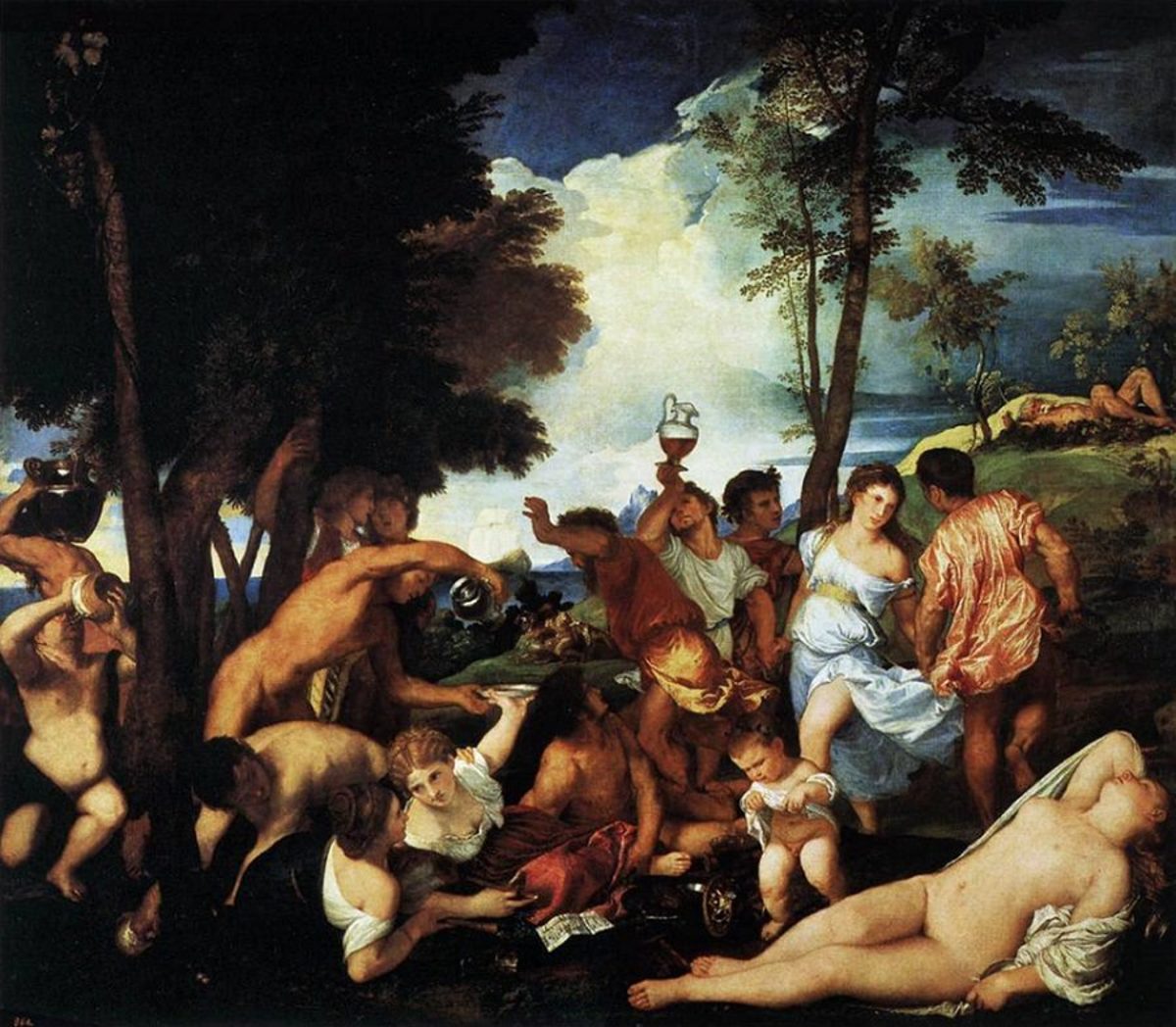A Crisis of Faith: Can Morality Exist in an Amoral Society?!

Beware: Ministers Of The Gospel
If you were given unquestionable proof that neither heaven nor hell existed – no rewards or punishment after death and no afterlife - how would you live your life? Would right or wrong really matter? Would morality be an issue or would amorality be the norm? What if the Bible was nothing more than folk literature given religious and spiritual authority?
Most people live their lives with the understanding that – right or wrong – whatever we do in this life will either be rewarded or punished after death? This notion guides our actions in the flesh but what if none of it really matter when it comes to the afterlife? You’re born, you live, you die, you’re done – that’s it?!
Would you capitalize on opportunities which, under religious norms – would otherwise be avoided? What type of society would prevail in the absence of a socio-religious moral system? Would the default be an amoral system or a system based on pure logics void of emotions? Perhaps humans by design are amoral creatures in the absence of an afterlife promise? Perhaps a god did not create man but man created a god and this man-made god was created to manipulate the masses for the benefit of the privileged few – allowing that privilege few to create a moral system to be manipulated at will – and justified via man inspired doctrines which we know today as ‘The Bible’.
When we view the world today where human suffering is concerned; the Middle East, Europe, Asia, Africa, South America, North America – practically every continent on the planet we ask; who’s to blame for it all? The obvious answer is man. Who allows it? The obvious answer is God. But what if God did not actually exist - or at least in a way that should guide mans actions in the flesh in relationship to an afterlife. From a surface glance it would certainly appear that man created a god to justify a moral system which can be used and manipulated at will for individual personal gains.
The bible suggests that all is born of sin and therefore subject to amoral behaviors. However, if the bible is nothing more than literature then sin would not be a reasonable excuse for an amoral attitude – which appears to be prevalent when you consider world suffering. The amoral philosophy suggests that your life is your own, which is not governed by external forces. The only limitations are the fact that you are a physical being in a physical world which consists of scientific matter. One of the greatest moral limitations to living a full life is by religion we are taught that if we do good in this life we will get our reward in the afterlife. While in the flesh we should seek fairness and justice – not wealth or materialistic goods – only justice. Suffering is the norm and the more you suffer the greater your reward in the afterlife. A few key principles in the suffering process is to turn the other cheek and "love those who persecute you for vengeance is mine saith the Lord (Rom 12:19)... and "You will not have to fight this battle..(2 Chronicles 20:17}", and "The Lord will fight for you (Exodus 14:14)". However, in an amoral society one must fight for themselves - there are only winners and losers and history is written by the winners - except in the case of the Bible where the history of the defeated, the downtrodden, and the poor are prevalent.
With this in mind why would one limit total happiness in a materialistic world in exchange for the unknown, and the unacceptable based on the unproven notion of a moral system dependent on a reward or punishment in either a heaven or a hell? If you were given unquestionable proof that neither heaven nor hell existed – no rewards or punishment after death and no afterlife - how would you live your life? Would you do good simply because you want something from someone? Would you do good deeds because you simply want the respect and admiration from others? Perhaps you would be altruistic because it’s the "right thing to do?" Would you sacrifice your well being or the wellbeing of your family if you knew you were not going to be judged for unfavorable actions towards others?
In the absence of a moral system built on religion how would you deal with those who may be grieving without using common religious clichés such as they are "now in a better place and watching over you" or "I will pray for you"? What would you do if you were in a horrible accident or discovered that you have a terminal illness, how would you deal with it - and what would be your response to someone who may say to you ‘just have faith – God will see you through?” These are moral requirements dependent on comfort from biblical resources. In an amoral society evil and suffering go hand-in-hand and are human creations. It’s a reality that can be prevented – or can it?
If death is the permanent end of our conscious existence and our lives are not part of a higher purpose then what meaning is there to life and why should we worry about immoral actions or consequences where it relates to an afterlife? Western culture is permeated by the belief in an afterlife and whatever rewards may follow. These beliefs are based on the limitations of a system dependent on religious morality. Millions in western societies and a large number in eastern cultures hold fast to such supernatural beliefs of a reward or punishment in the afterlife because they feel that certain social, psychological, and physical needs could not be met without them. One critical need is hope. Hope offers the powerless a future and a belief that they will be rewarded for their suffering.
However, for the amoral Christian hope is nothing more than a crutch for the poor, the downtrodden, and victims of a lost battle. After all, the bible was written from the viewpoint of the downtrodden, the poor, the oppressed, the enslaved, the conquered, the occupied, and the defeated – and it’s a very bias viewpoint. It is a book designed to give the hopeless hope of a better life and to condemn perpetrators who may reap financial awards at the expense of the poor. It is a book written not for historical accuracy but for conversion. Whenever Jesus preached about the arrival of the kingdom of God he would encourage the downtrodden by suggesting “the last will be first and the first last.” Such statements strike fear in the belief system of the amoral. It suggests that the haves will become the have not’s, and the have not’s will inherit the earth. To the amoral such teachings offers little room for apathy for the conquered.
Society norms suggest that amoral people lack the motivation to be moral because they simply do not believe in rewards or punishments in the afterlife and therefore feel they should dominate resources in this life. So called moral Christians are assumed to be so grounded in a doctrine of atonement that they do not question rewards in the afterlife. To them it’s just the way it is. In reality the doctrine of atonement may do nothing more than relieve them of accountability for one's own actions which in itself makes them amoral because they base their actions – or lack thereof - on biblical teachings which, in most cases, justifies violence – moral versus amoral, haves versus have not’s, Jews versus Gentiles. Even their prayers are often centered on a bargaining methodology with God for personal gains – in this life. Amoral behavior suggests that the purpose of life is to live and since there are no rewards in an afterlife why not acquire as much happiness as possible in this life for one’s own enjoyment. As a result the amoral lack of a conception of heaven or hell affords them no motivation to do good……..and the bible…if read from the perspective of the wealthy justifies the means.
In western societies Christianity strives because it offers mankind the hope of a reward in the afterlife – which includes the promise of a spiritual life after death. What that reward may be, and what type of life after death may exist is subject to wide speculations. Christians have a variety of subjective conceptions of the afterlife. Such conceptions guide their lives now in the living flesh. However, given the state of human suffering across the globe how does one determine who is in fact a moral or an amoral Christian? It is definitely hard to determine because it varies based on human needs.
Perhaps Christianity in itself is amoral because Jesus did not create a religion that one must follow after His death. Jesus always pointed to the Father and encouraged his followers to not worship Him but the Father in Heaven. Therefore, to create a religion in honor of Jesus and label it such with the expectations that its followers are all moral people is an illusion. Particularly considering the atrocities its followers have created against their very own members in His name. Therefore to be called a Christian has little to no association with morality or doing good deeds. Being labeled a Christian does not make people any moral than a baptism. There are millions who claim to be Christians but base on their individual actions the book of Matthew 7:15-20 suggests otherwise. Perhaps these 'Christians' are victims of 'Cognitive Dissonance' which psychologists describe as the excessive mental stress and discomfort experienced by individuals who holds two or more contradictory beliefs, ideas, or values at the same time.
People have lost their faith in God – due to no fault of God himself but the perception of what God is or should be – and their bias comprehension of biblical scripture. Perhaps people lost their faith due to the amoral attitudes and behavior demonstrated by so-called Christian leaders. Perhaps televangelists and religious leaders in general who requests billion dollars private jets, mega churches, and billion dollars homes for personal gratifications - and those who preach prosperity messages based on monetary gains are excellent examples of how those who claim to be moral leaders are really narcissistic amoral by nature. While the jury is still out on the long term negative impact they may have on believers it is no doubt that believers have been negatively affected where their faith is concerned. Perhaps the book of Titus 1:16 best describes these preachers as it states; “They claim to know God, but by their actions they deny him. They are detestable, disobedient and unfit for doing anything good”
Nevertheless let the believers faith be based on moral behavior demonstrated by Jesus and not man. On the other hand…non belief in Jesus, God, or the Bible does not necessarily make one amoral. There are millions of Atheists, Agnostics, Buddhists, and non Christians who live moral lives greater than those who profess to be moral Christians. Individual actions determine ones moral status, not religious belief systems- or lack thereof.
If you were given unquestionable proof that neither heaven nor hell existed – no rewards or punishment after death and no afterlife - how would you live your life - moral or amoral? We all have free wills to choose and the unbeliever will choose their own paths. If one does not believe in a god, a savior, or an afterlife then none of this matters. The believer however will find comfort and guidance in the book of Joshua 24:15 as it states:
“But if serving the LORD seems undesirable to you, then choose for yourselves this day whom you will serve, whether the gods your ancestors served beyond the Euphrates, or the gods of the Amorites, in whose land you are living. But as for me and my household, we will serve the LORD."
The non believer will find comfort in simply knowing right from wrong absent of religious teachings. Whether you are a believer or non believer - moral or amoral your obligation to your fellow human being is to Live, and let live!!






